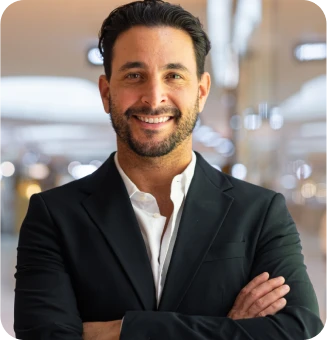You have signed up as a referral partner, and now you are ready to help patients access the care they need.
Maybe you have told your friends. But then comes the question: Where do I begin?
This guide gives you a clear 3-step plan to help you spot potential patients, start real conversations, and begin facilitating cases — all in your first week.
Let’s get into it.

Step 1: Build Your “Patient Radar” — List 15 People You Know Might Need Help
Your best leads are already around you; you just haven’t looked at them like that yet.
Who should be on your list? Think about people you already know who:
- Have a serious or long-term health condition
- Recently got diagnosed and are unsure what to do next
- Have been visiting multiple doctors without results
- Are exploring options for treatment abroad or in major cities
- Complain that local care isn't helping
- Mention family members or relatives struggling with illness
Don’t overthink it. Keep this list in a notebook, phone Notes app, or Google Sheet — whatever works best for you.
Don’t limit yourself to people you know well. Also, think of those you have heard about from family, friends, or neighbours.
Pro Tip: Break them into 3 categories — Ready Now, Maybe Later, and Needs More Info. This helps you prioritise who to speak to first.

Step 2: Reach Out to 5 People — Gently, Casually, No Pressure
Now that you have a shortlist, it’s time to reach out — but not with a pitch.
Your goal here isn’t to convince someone on the spot. It’s to start the conversation, show them you are someone who can help, and make it easy for them to reach out when they are ready.
Sample Message You Can Send:
“Hey [Name], just wanted to say — if you or someone you know is looking for better options for medical treatment abroad, I might be able to help with the process. Let me know anytime.”
You can send this by:
- In-person conversation
Why this works: People are more likely to ask for help if they know someone, they trust is offering it. You are not cold calling but planting a seed.
Also consider posting a short version as a WhatsApp status or Facebook and Instagram stories — people who need help often won’t ask directly, but they’ll respond to what they see.
Sample WhatsApp status or FB story:
“If you or someone you know is looking for better treatment options abroad and doesn’t know where to start — I might be able to help with the process. You can always reach out.”

Step 3: Learn to Spot Patient Cases in Everyday Conversations
You’d be surprised how many times someone around you has needed help and you missed it.
Your job is to notice those signs and offer a solution without sounding like you are selling anything.
Listen for phrases like:
- “We have tried so many doctors — nothing is working.”
- “He was misdiagnosed again.”
- “We are thinking about going abroad, but it’s expensive.”
- “Someone said India has better hospitals, but I don’t know where to start.”
- “My uncle has cancer, but treatment here is too slow.”
Each of these is an opportunity to say something simple like:
- “I might know a way to help with that. Want me to look into it?”
Simple. No pressure. And suddenly, you are not just a friend — you are a trusted bridge to real care.
Tip: The more you listen without rushing to talk, the more people will open up
Quick Recap: Your First 7 Days, Made Simple
| Day | What to Do |
|---|---|
| 1–2 | List 15 people you know (or know of) who might need better care |
| 3–4 | Reach out to 5 of them with a soft, helpful message |
| 5–7 | Start listening carefully in conversations — look for real-life referral signals |
Bonus Suggestions
- Post a simple message to your WhatsApp or Facebook status once a week.
- Talk to a local pharmacist, community leader, or clinic staff — they often hear who’s in need.
- Ask someone you trust if they have heard of anyone struggling with a diagnosis or treatment plan.
You don’t need to do everything at once. Just stay active. Stay aware. Stay helpful. Being a referral partner is about listening, noticing, and taking small actions every day. That’s how cases come in. That’s how income grows.
So don’t wait for the perfect moment. Don’t wait to “figure it all out.”.




